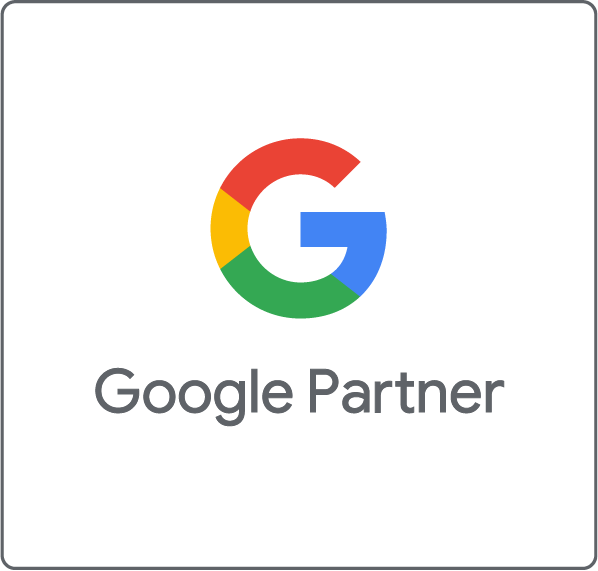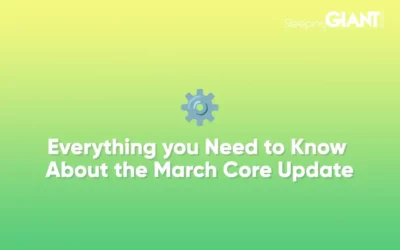
Why Does Your Business Need Keyword Research?
What is Keyword Research?
If you’ve considered SEO at all for your business you have probably heard the term Keyword research being thrown around. But the question is, do you actually know what it is and why we definitely recommend you do it? If not, never fear as I am about to tell you the 5 reasons why Keyword Research is an absolute must when it comes to SEO-ing your website!
I will also be using my very helpful (and entirely fictional) company, Snoozing Gnome Media (Trademark pending) to demonstrate how and why Keyword Research is so important.
Five Reasons Keyword Research Is Important
1 – You understand where your audience is, not where you think they are
The biggest challenge with keyword research is ensuring that you understand what the output is telling you. The misconception with optimising for keywords is that you simply decide what words match with your business and optimise for those. In reality, keyword research actually does the opposite. Good keyword research will tell you what your users are searching for and therefore give you an idea of what words you should be using!
Let’s take a look at Snoozing Gnome Media again – being an SEO agency, these guys have been looking at their pages and optimising for ‘seo keyword research’ as that’s a service they offer and it makes sense. However, when looking at what Google tells us is the AMSV (Average monthly search volume) it appears that 720 people, on average, search for this term. After doing their research though, they found that ‘keyword research’ actually has 2,900 people, on average, searching for this term.
That equates to about 2,180 more people searching for ‘keyword research’ as opposed to ‘seo keyword research’.
By making this initial assumption, Snoozing Gnome Media have potentially limited their optimisation to a smaller audience and are therefore reducing the amount of people that could come across their site. Remember, the keyword research will tell you what people are searching, not what you would like them to search!
2 – Watch out for your tail (keywords)!
Now that you have your list of keywords and you’re looking at what people are searching for, you’re ready to go right? Well, not quite. Although it’s tempting to take all the keywords with massive search volumes, this isn’t always the smart play as the keywords with a small amount of searches are just as important as the keywords with thousands of searches. Often we call these keywords the ‘long tail’ while the keywords with the most are the ‘short tail’ keywords (although this can also relate to the length of the query).
A good keyword research and subsequent SEO strategy involves a combination of both long and short tail keywords because they target a variety of users at different points in their customer journey. There can be lots of different intentions behind the 2,900 average searches for a short tail keyword like ‘keyword research’; they may want to know what it is, they may want to find an agency to do it for them, or they may be trying to find an answer to a pub quiz question. It’s a broad term and although good to rank for it, it is harder to understand what a user wants to fulfil with this query.
On the other hand, ‘keyword research agency’ has an AMSV of 30 but there is a higher chance that the user typing this search is looking for an agency to do their keyword research for them. This means that by optimising for this keyword you are more likely to get someone primed and ready to contact you or sign up.
So when it comes to deciding what keywords to focus on, our friends over at Snoozing Gnome Media have wisely decided to focus on a combination of long tail and short tail keywords in order to try and rank in front of as many people as possible at all stages of their customer journey. The high AMSV keywords are there to capture those who are considering what they need while also creating awareness of their brand, while the long tail keywords with less searches are designed to capture the attention of the people ready to take on their services!
3 – It’s not all about you…
It’s always hard to hear but it’s not all about you! A well-rounded keyword research doesn’t just look at how your site is doing and where your audience is but it also takes into account what your competitors are doing and what keywords they are ranking for. Identifying these gaps makes it easier to understand what keywords you may need to target (or avoid) in order to get the most out of your optimisation.
The Gnomes over at Snoozing Gnome Media have been looking at what their competitors have been ranking for, for example, and made some decisions on what they should be optimising for. They have a lot of advice on their blogs and posts about how to improve their clients’ content, but they never mention ‘keyword optimisation’, which has an AMSV of 30, whereas their competitor across the road, Opto-Mise-Nation seems to be ranking really well for it. This is an example of a gap that is worth going after to make sure your great content is in front of people who are ready to learn.
There are occasions when you would identify keywords that could be avoided, too. ‘Simple keyword research’ only has 10 average searches a month which can make it a great place to target but if other businesses have the same idea then it can make it incredibly competitive. Instead, it would be worth finding a less competitive, more niche keyword to focus on instead. This works the other way too; a query with a lot of monthly searches will attract a lot of people fighting over those searches, so by looking at who is ranking for what you can understand where to invest your precious time and content.
4 – It can help you create new content and fill in the gaps
So up to now, you’ll see that Keyword Research isn’t just about the odd keyword here and there… it tells you what users are searching for, and what your competitors may be doing, and it helps you vary the language and targeting used on your site! Clever right? And by doing all of this it highlights to you where your gaps may be – the gaps that are stopping your site from appearing in front of those users.
When looking at the current state of your site, you may see that a particular keyword is ranking in 13th on page 2 and you really, really want to get that onto page 1. Part of this can be done by optimising your current pages. But Google is a greedy search engine and loves new content – so if you know what keyword you want to target, you also potentially know what new content can be created to boost your site’s authority on it!
When the Gnomes at Snoozing Gnome Media realised that they were ranking poorly for ‘keyword optimisation’ they decided to write some content about it to show they really know their stuff but also because they knew it was a keyword gap. As a result the article they wrote, ‘Why does your business need keyword optimisation?’ was written with that keyword in mind, used organically within the body content, headers, and meta description in order to optimise for this keyword.
The result is that Google will begin to understand the site’s authority on the topic. It gobbles up the fresh content which shows that the site is actively updated and maintained and it helps the Gnomes reach new audiences… all thanks to Keyword Research!
5 – It forms the backbone of your SEO strategy
As you can see, Keyword Research provides a great deal of insight into the current position of your site; what it ranks for and where you can improve. You can understand the gaps needed to get in front of the audience you want to reach and you can identify the gaps between you and your competitors. As you get all of this insight you can also begin to formulate the next steps of your SEO strategy in order to improve and maintain your site and your content to continue growing and ranking.
By identifying the content gaps, you can begin to create a content plan that involves social support, for example, to build content around topics you want to rank for and show your authority in. The keywords themselves can form the Keyword Mapping task where you decide what keywords should be ranking for what page, diverting the traffic to the page most relevant to responding to that query. This way you aren’t just potentially increasing your traffic but you are understanding the customer journey more as they move through your site.
Yes, the keyword research can show you the way to getting a particular keyword to rank in first, but the next step is to understanding that it’s not just about a singular query, it’s about a combination of various keywords and queries that begin to build your authority and trust score with Google, all of which feeds into that final ranking score.
So there you have it, the Gnomes at Snoozing Gnome Media have managed to improve their site and learn a thing or two about the importance of correctly targeting keywords across their pages. Not only have they learnt that there’s a larger audience for them to reach but they have found some gaps that will allow their business to grow organically.
And if you need help or want some advice on how to get started with Keyword Research or to work with us, you can contact one of many Giants here at Sleeping Giant Media and we will be happy to help!
Blog
Everything you Need to Know About the March Core Update
We knew it wouldn’t be long before Google released their first core update of...
Giant Wednesday
How To Optimise Images For Websites
Digital Marketing, technology & business insights, how-to's and explainer...
Follow Us
Sign Up For More
Stay up to date with the latest happenings, learnings, events & more with our GIANT Newsletters.
Contact Us
Top Floor, The Civic Centre, Castle Hill Avenue, Folkestone CT20 2QY.
Copyright © 2022 Sleeping Giant Media. All Rights Reserved.




